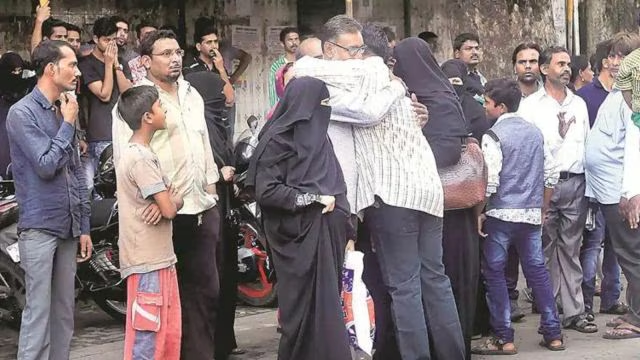A teacher acquitted in the 7/11 Mumbai train blasts case is demanding ₹9 crore as compensation for wrongful imprisonment. The court’s verdict has raised questions about justice and accountability for those falsely accused. Learn more about the case, the compensation claim, and its implications.

Acquitted in 7/11 Mumbai Train Blasts Case, Teacher Demands ₹9 Crore Compensation for Wrongful Incarceration
Background of the 7/11 Mumbai Train Blasts and the Teacher’s Arrest
On July 11, 2006, a series of devastating bomb blasts shook Mumbai’s local train network during peak hours. The blasts claimed over 180 lives and injured hundreds, leaving a lasting scar on the city’s memory. In the aftermath, law enforcement agencies scrambled to identify and arrest suspects. Among those arrested was a school teacher, who was later accused of involvement in the blasts.
However, after years of investigation and court proceedings, the teacher was found innocent and acquitted. The verdict highlighted a serious miscarriage of justice, as the individual had spent several years in custody without any substantial evidence proving their involvement.
The Demand for Compensation: ₹9 Crore for Years Lost
Following his acquittal, the teacher has filed a petition seeking ₹9 crore as compensation for wrongful incarceration. He argues that his life, career, reputation, and mental well-being were severely damaged due to the unjust imprisonment.
The compensation claim not only covers the financial losses but also the
Legal and Social Implications of Wrongful Imprisonment
Wrongful incarceration has far-reaching consequences beyond monetary losses. It affects:
- Reputation: Once labeled as a terrorist suspect, rebuilding trust is a challenge.
- Mental Health: Prison trauma, stress, and isolation have long-lasting psychological impacts.
- Career: Professional setbacks and job loss can take years to recover from.
- Family: Strained relationships and financial hardships burden families for generations.
The compensation claim emphasizes the need for stricter accountability mechanisms within law enforcement and judicial processes. Experts argue that reforms must be made to ensure that individuals are not penalized without due process and reliable evidence.
What This Case Means for Justice and Accountability
This case reignites debates about the balance between national security and civil rights. While counter-terrorism efforts are crucial, safeguards must be in place to protect innocent citizens from systemic failures.
The teacher’s demand for compensation could lead to broader discussions on:
✔ Reviewing cases of wrongful incarceration
✔ Strengthening judicial oversight
✔ Enhancing procedural safeguards for suspects
✔ Expediting compensation for victims of judicial errors
Public Reaction and Support for the Teacher’s Claim
Many human rights organizations and legal experts have expressed solidarity with the teacher’s cause. Public support is mounting as citizens question how easily someone can be swept up by flawed investigations.
Online campaigns are urging policymakers to fast-track compensation processes and introduce reforms to prevent such injustices in the future.
The acquittal of the teacher in the 7/11 Mumbai train blasts case and his subsequent demand for ₹9 crore in compensation highlight a critical issue in the justice system. As debates intensify over civil liberties, national security, and judicial accountability, this case could pave the way for much-needed reforms that safeguard the rights of innocent citizens while ensuring justice for all.














 Categories
Categories








